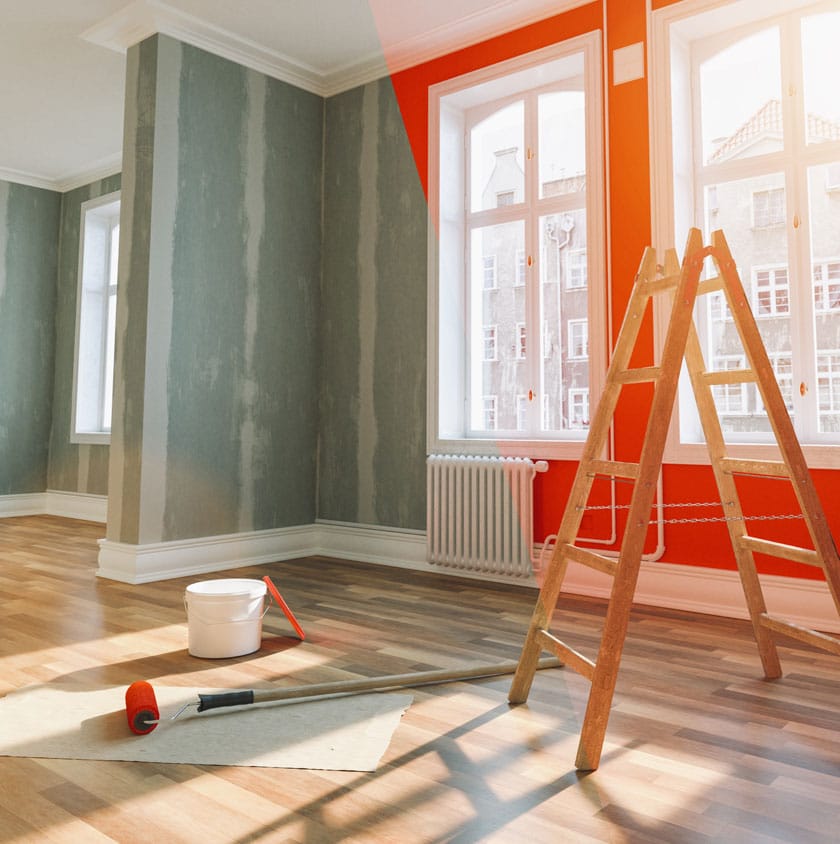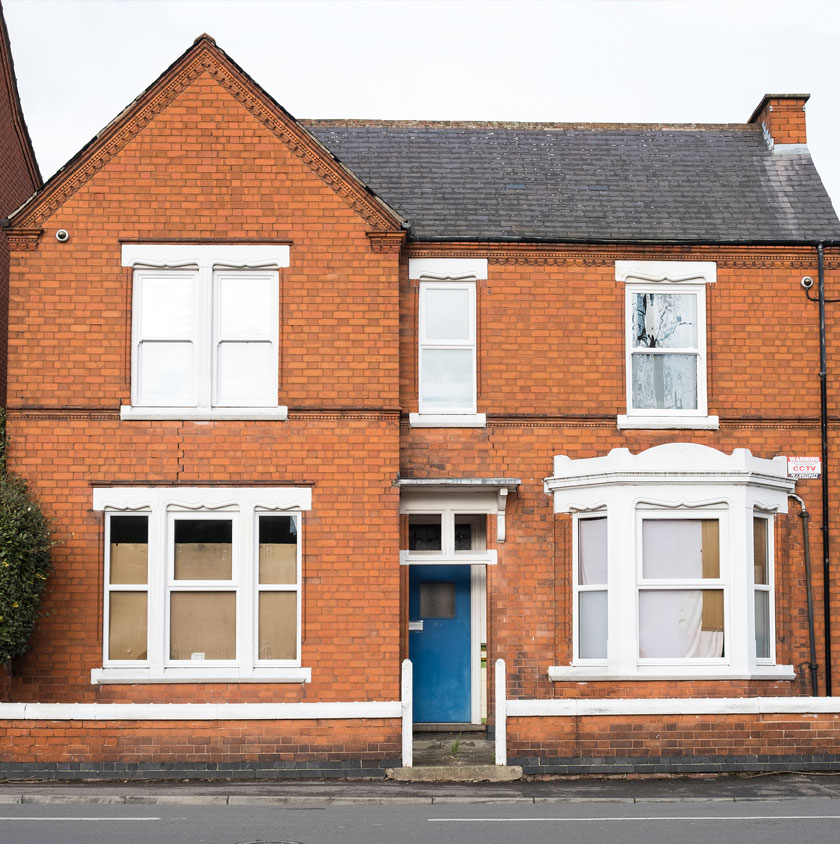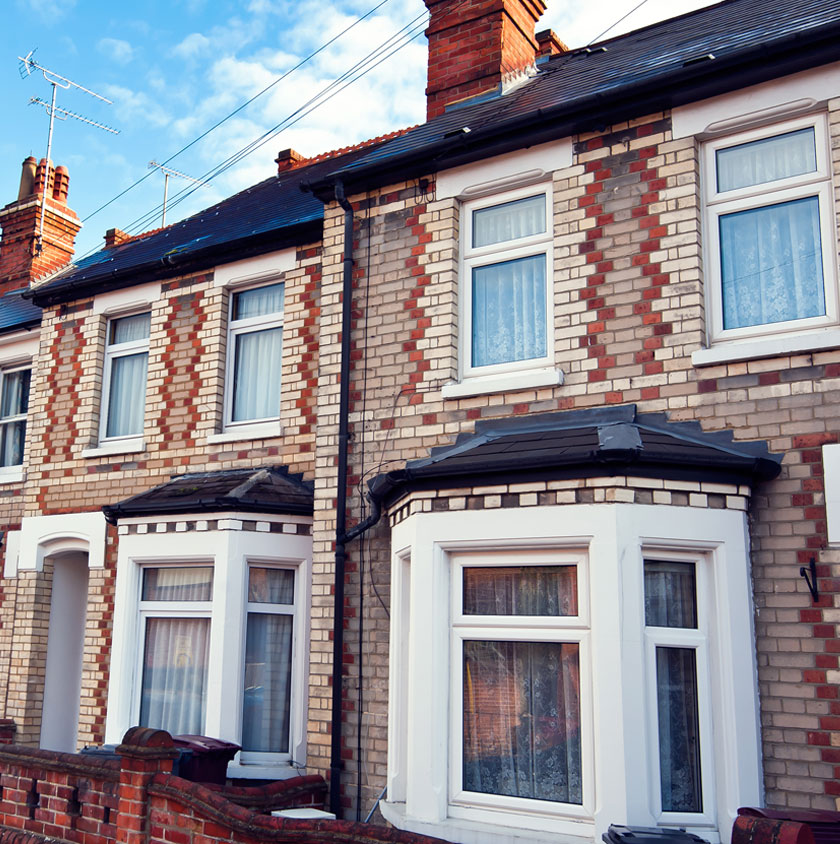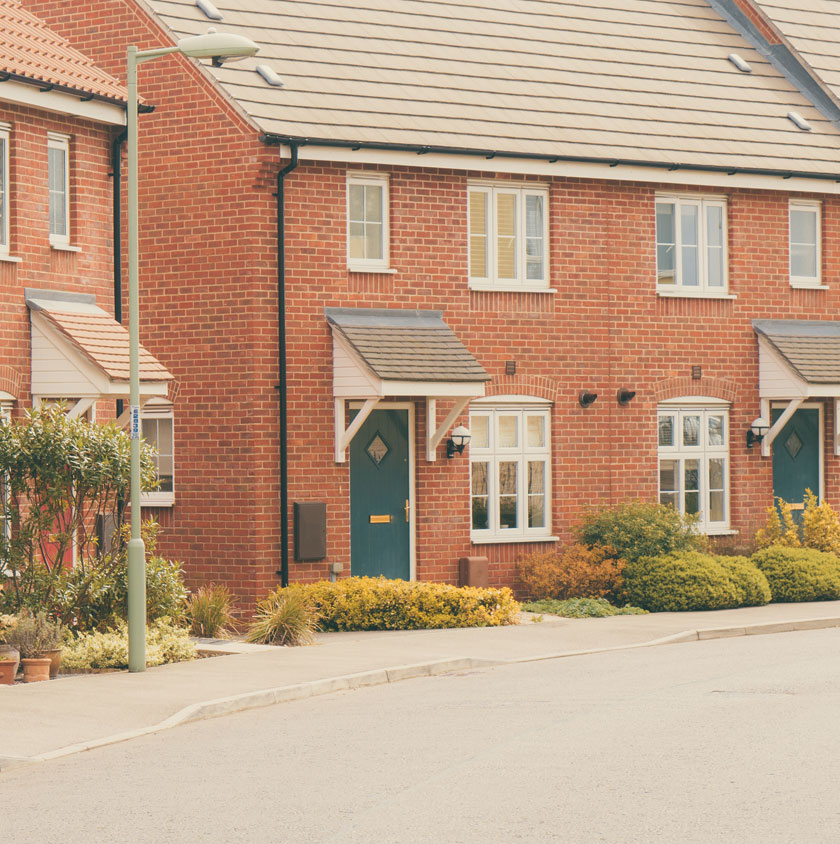
Unoccupied Property Insurance
Compare Unoccupied Home Insurance Quotes
- Complete one short form
- Quickly compare quotes
- Find a great deal today

Compare affordable quotes from top unoccupied home insurers, including;
Why Compare Unoccupied Property Insurance at SimplyQuote.co.uk
Unoccupied property insurance protects homes left empty for extended periods—comparing quotes through simplyquote.co.uk helps you find a policy tailored to the risks that arise when no one’s living there.
We’ve partnered with Quotezone to give you access to specialist insurers who understand the added exposure unoccupied homes face.
Many standard home insurance policies only remain valid for up to 30 consecutive days of vacancy. After that, even basic claims—like fire, flood, or theft—may be rejected if the insurer isn’t aware the property is unoccupied.
Unoccupied insurance is designed to plug that gap. Whether your property is going through probate, awaiting renovation, between tenants, or up for sale, this type of policy can give you financial protection when you’re not physically present.
By comparing quotes, you can filter based on how long the property will be empty, the level of cover you want, and what extras (like contents or liability insurance) you might need. You’ll see tailored options in one place—making it easier to insure the property properly, without overpaying.
What Do I Need to Get a Quote?
To get an unoccupied property insurance quote, you’ll need to provide some basic details about the home, how long it will be vacant, and the reason it’s unoccupied.
The process only takes a few minutes if you’ve got the information to hand.
Here’s what you’ll typically be asked for:
- The property address and postcode – Insurers assess risk based on location, including crime rate, flood zones, and rebuild costs.
- Reason for unoccupancy – Whether it’s between tenants, going through probate, under renovation, or up for sale.
- Length of unoccupancy – Most policies are offered on 3, 6, or 12-month terms.
- Property condition – You may need to confirm whether the home is furnished, heated, or regularly maintained.
- Security features – Locks, alarms, CCTV, and whether the property is visited during vacancy periods.
- Type of cover required – Buildings only, or buildings and contents combined, plus any extras like liability or legal protection.
You won’t need to submit documents during the quote stage, but accurate information leads to more relevant results. Once accepted, many policies can start the same day, giving you fast protection when it matters most.
Why Do I Need Unoccupied Property Insurance Cover?
Unoccupied property insurance is essential because most standard home insurance policies become invalid after 30 days of vacancy—leaving you unprotected against fire, theft, or damage when no one’s living there.
Without the right cover, any claim you make could be rejected.
Empty homes face higher risks. With no one around to spot a leak, deter intruders, or report damage early, problems can escalate quickly. Even a small issue—like a leaking pipe or broken window—can turn into a costly disaster if it goes unnoticed for weeks.
This type of policy is specifically designed for homes that are temporarily vacant due to:
- Sale delays or probate
- Renovation work
- Landlord voids between tenants
- Long-term travel or relocation
- Second homes left unoccupied for long periods
It provides peace of mind during uncertain or transitional periods, offering protection that reflects the increased risk of a property being left empty. Whether you’re away for weeks or managing an estate, this cover can prevent financial loss when your home is most vulnerable.

Who Needs Unoccupied Property Insurance?
Unoccupied property insurance is essential for anyone responsible for a home that will be vacant for 30 days or more—whether you’re a landlord, probate executor, renovator, or selling a second home.
If no one’s living in the property, standard home insurance might not be enough.
You may need this type of cover if you’re:
- A landlord between tenants – Standard landlord insurance may not apply once a property is vacant. This cover protects you during tenancy gaps.
- An executor or administrator handling probate – If you’ve inherited a property or are overseeing an estate, you’re responsible for keeping the home insured while it’s empty.
- A homeowner selling your property – If you’ve moved out but the home hasn’t sold, you may need specialist cover to avoid a lapse in protection.
- Renovating or refurbishing a property – If no one is living in the home while work is carried out, risks like theft, fire, and water damage increase significantly.
- A second-home owner who visits infrequently – Even furnished second homes can become high-risk if they’re empty for extended periods without checks.
Unoccupied home insurance is about responsibility as much as ownership. If the risk sits with you, so should the protection—even if you’re not sleeping under the roof.
What Types Of Properties Can Be Insured While Unoccupied?
Most residential properties can be insured while unoccupied, including homes for sale, undergoing renovation, in probate, or between tenants—as long as they are structurally sound and legally owned.
The key is declaring the reason for unoccupancy when you request a quote.
Unoccupied home insurance is designed to flex around a range of scenarios. Whether your property is a second home left vacant during winter, or a rental that’s awaiting new tenants, there’s likely a policy to fit.
Common examples of insurable unoccupied properties include:
- Homes for sale where the owner has already moved out
- Properties undergoing light or major renovation
- Houses going through probate or estate administration
- Second homes used seasonally or infrequently
- Buy-to-let properties during tenant changeovers
- Holiday homes left vacant outside peak seasons
Insurers may have specific criteria depending on the length of unoccupancy, condition of the property, or whether it’s furnished or not. Being transparent about the situation ensures your cover is valid—and you’re properly protected while the property is empty.

What Does Unoccupied Property Insurance Cover Include?
Unoccupied property insurance usually covers buildings against major risks like fire, flood, storm damage, theft, and vandalism—offering essential protection when no one’s there to act fast.
It’s tailored for the unique risks that come with empty homes. Here’s what’s typically included:
Fire, lightning, and explosion damage
Protects against total or partial loss if a fire breaks out while the property is unattended.
Theft or attempted theft
Cover for break-ins, whether items are stolen or just damaged in the attempt.
Vandalism and malicious damage
Protects the property if it’s targeted by trespassers.
Escape of water or oil
Covers damage from burst pipes, leaking tanks, or heating systems—especially important in winter.
Storm and weather damage
Includes wind, rain, or snow damage to roofs, windows, and outbuildings.
Property owner’s liability
Covers legal claims if someone is injured on or near your vacant property.
Policies may vary in their level of protection depending on how long the home will be unoccupied and whether regular checks are made. Always check what conditions apply—especially around heating, water systems, and security requirements.
Can I Add Extras Like Contents Or Legal Cover?
Yes, most unoccupied home insurance policies allow you to add optional extras like contents cover, legal expenses, or accidental damage protection—depending on your situation and how the property is being managed.
These extras can be especially valuable for landlords, probate executors, or anyone managing long-term vacancy.
Here are some of the most common add-ons:
- Contents cover – Useful if furniture, appliances, or personal items remain inside the property.
- Accidental damage – Covers unexpected incidents like a cracked sink, damaged flooring, or a DIY mishap during renovation.
- Legal expenses – Helps cover the cost of legal representation if you’re faced with disputes, such as with squatters or contractors.
- Unoccupied landlord cover – Tailored for rental properties between tenancies, often with liability protection included.
- Emergency assistance – Some policies offer access to tradespeople for urgent repairs, even if the home is empty.
Not all extras are offered by every insurer, and eligibility may depend on how often the property is checked or what heating/security measures are in place. But if you want broader protection, these optional layers can close important gaps in cover.
What’s Not Included?
Unoccupied property insurance won’t usually cover general wear and tear, long-term neglect, or issues that arise from failing to secure or maintain the property.
Knowing what’s excluded is as important as knowing what’s protected. Here are some of the most common exclusions:
- Wear and tear – Gradual deterioration like rust, rot, or ageing isn’t covered.
- Undetected leaks – If a leak goes unnoticed for weeks due to infrequent checks, some policies may deny the claim.
- Unlawful occupancy – Claims may be rejected if squatters or trespassers aren’t reported promptly or if proper legal action isn’t taken.
- Unforced entry theft – Theft without signs of forced entry may be excluded if the property wasn’t secured properly.
- Unauthorised renovations – Structural changes that weren’t declared or approved could void your policy.
- Empty beyond the agreed period – If the home is left vacant longer than you told your insurer, cover may lapse automatically.
Exclusions vary slightly by provider, but most depend on whether you’ve kept the property in good condition and followed any inspection or security requirements outlined in the policy. Always read the small print—and if in doubt, ask.
How Much Does Unoccupied Home Insurance Cost?
Unoccupied property insurance typically starts from around £150 to £300 for short-term policies—but the price depends on your property’s condition, location, and how long it will be vacant.
The more risk involved, the higher your premium is likely to be.
Insurers calculate cost based on a range of factors, including how well the property is maintained and whether it’s at higher risk of claims while empty. For example, a home undergoing renovation with no working alarm system may be more expensive to insure than a second home kept in good condition.
Premiums tend to rise if:
- The property is in a high-crime or flood-prone area
- There are signs of disrepair (roof damage, leaks, etc.)
- It’s been empty for several months or more
- There’s no regular inspection schedule in place
- You need extended cover (12+ months) or extras like contents and liability
Shorter policies—like 3-month or 6-month terms—are usually cheaper upfront, but may not offer the same level of protection. Comparing quotes helps ensure you’re not overpaying for basic protection, and not underinsured for a high-risk scenario.

How Can I Save Money On Unoccupied Property Insurance?
You can lower the cost of unoccupied home insurance by improving security, reducing the vacancy period, and only paying for the cover you actually need.
Small changes in how the property is maintained and insured can lead to meaningful savings.
Here are some effective ways to cut costs:
Install better security
Alarm systems, window locks, and CCTV can lower premiums by reducing risk.
Commit to regular inspections
Some insurers offer lower rates if the property is checked every 7 or 14 days.
Use a shorter policy term
If you only need 3 or 6 months of cover, don’t overpay for 12.
Strip out extras you won’t use
Skip contents or accidental damage cover if the property is empty and unfurnished.
Pay annually, not monthly
Upfront payment can sometimes result in a cheaper premium overall.
Compare multiple quotes
Insurers view vacant homes differently. Comparing policies side-by-side helps you find the best fit at the best price.
Choosing the cheapest policy isn’t always smart—but choosing the right level of cover for your situation is. With a few adjustments, you can cut costs while keeping essential protection in place.
How To Compare Quotes For Unoccupied Property Insurance At SimplyQuote
Comparing unoccupied home insurance quotes at simplyquote.co.uk only takes a few minutes—and helps you find a policy built around your property’s unique risks.
Whether the home is awaiting sale, undergoing renovation, or left vacant between tenants, the process is simple.
Here’s how it works:
- Tell us about the property
Input the address, property type, and whether it’s furnished, heated, or under renovation. - Explain why it’s unoccupied
Select the reason—sale, probate, refurbishment, tenancy gap—and let us know how long it’s expected to remain vacant. - Choose your cover options
Decide whether you want buildings-only or buildings and contents, and whether extras like liability or legal protection are needed. - Compare quotes instantly
Review offers from FCA-regulated insurers side-by-side, including price, cover level, and optional add-ons. - Pick and protect
Select the policy that matches your needs and budget. Many policies can start the same day with documents sent via email.
Thanks to our partnership with Quotezone, you’ll be comparing a panel of specialist insurers—without having to repeat your details over and over.
Frequently Asked Questions
Yes, usually. If a home is vacant during renovations, standard home insurance might not apply—especially if structural changes are being made. Unoccupied cover fills that gap.
It depends. Some policies exclude unlawful occupation, while others include it under legal expenses or malicious damage. Always check the small print or ask before buying.
Yes, but it’s more complex. Many insurers cap cover at 3, 6, or 12 months. For long-term vacancies, you may need a specialist provider with stricter conditions.
Possibly. Some insurers will still offer cover if gas, electricity, and water are off—but you may be required to keep minimal heating to prevent frozen pipes.
Yes, in most cases. If declared during the quote process, detached garages, sheds, and outbuildings are often covered under buildings insurance.
Typically every 7–14 days. Some policies require regular checks as a condition of cover, especially during colder months. Written logs or photos may be needed.
Sometimes. Some insurers offer mid-term adjustments or extensions, but this depends on your provider. Check your policy terms or contact your broker directly.
Not usually. If the property is completely empty, buildings-only cover may be enough. But if any items of value remain, contents cover is worth considering.


